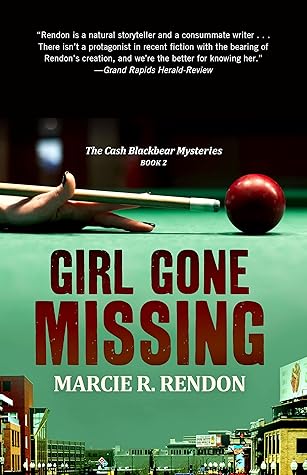More on this book
Kindle Notes & Highlights
Cash was learning a lot at Moorhead State College. She had already found out that most girls her age considered shooting pool a sin, against their church upbringing. While Cash drank Budweiser and wore straight-legged blue jeans and a clean T-shirt under a Levi jean jacket each day, a good handful of the students preferred smoking weed to drinking. They dressed in bell-bottom jeans and sheer peasant blouses: hippie attire. They talked about making love, not war. They flashed peace signs at each other as they crossed the green campus lawn.
Cash stood on tiptoe to reach across the table to line up on the 12. She was also learning that college hippie chicks wanted to talk about free love, weed and ending the war in Vietnam more than anything else.
“Guess they started a street patrol down in the Cities. The cops were picking up Indians from Franklin Avenue at closing time, just putting them in the trunks of their car and then dumping them down by the Mississippi or beating them up. So AIM started a patrol to get folks home safely. They talk about Indians standing up for their rights. My boyfriend says they’re like the Black Panthers, but Indians.”
No one at the counter paid any attention to Cash. In Fargo–Moorhead, everyone, everywhere you went, looked you over. To see if they knew you. To see if they went to high school with you.
Cash had experienced firsthand people who had no regard for anyone else, people who wanted to destroy, out of some perverse sense, the light that shone in others.


